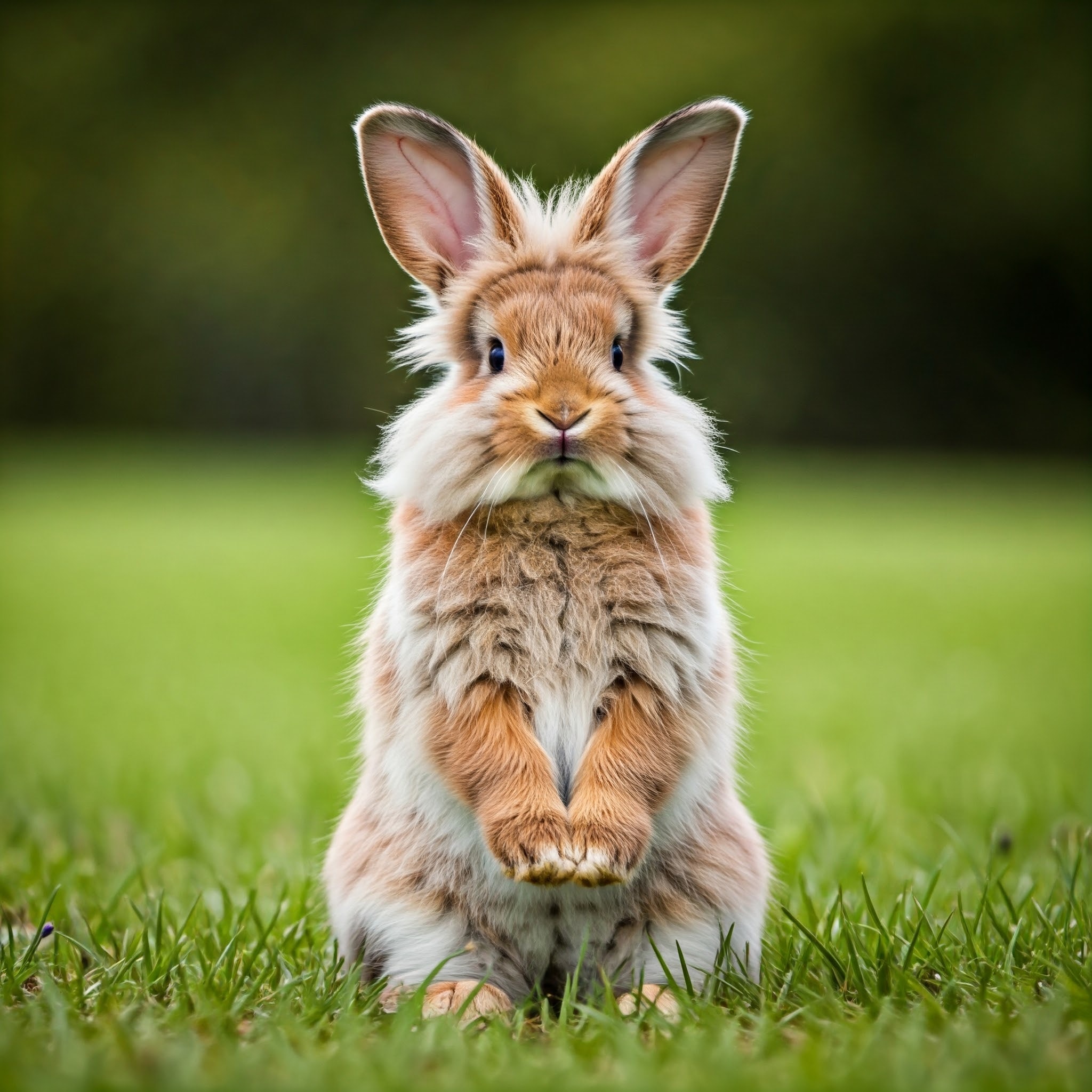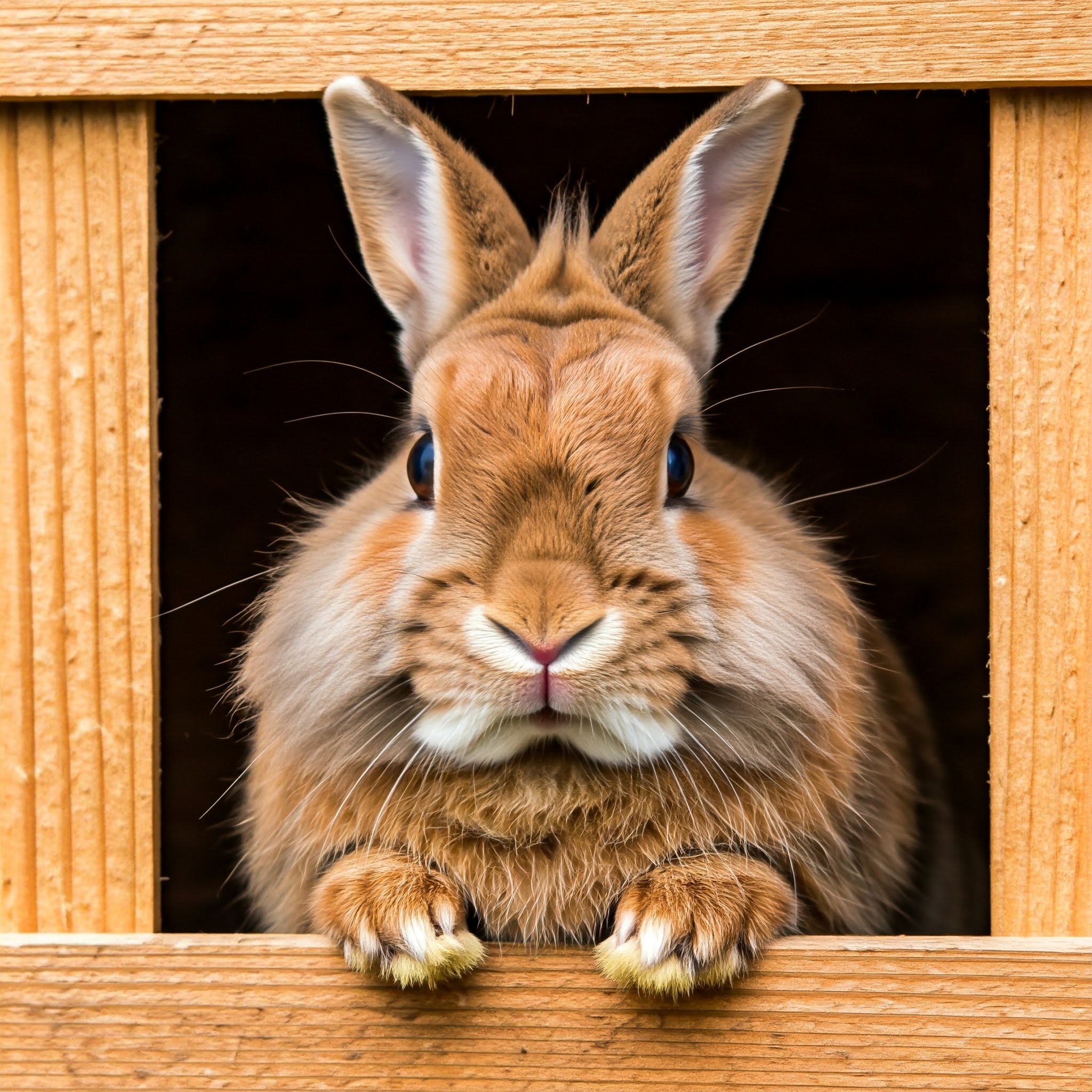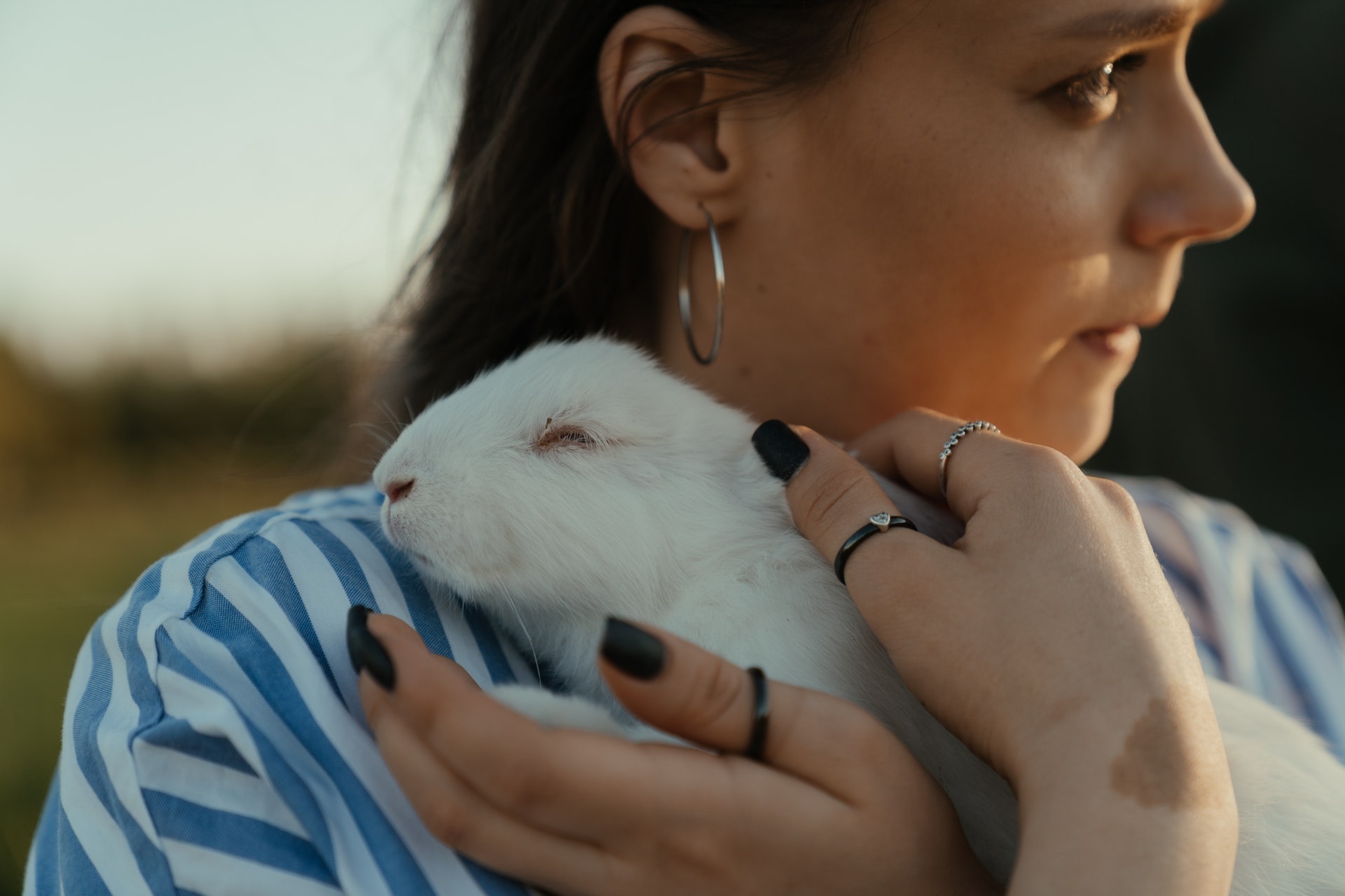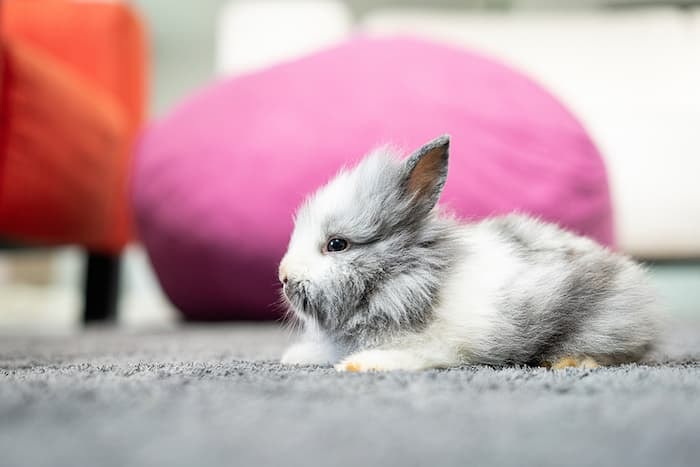Rabbits as emotional support animals, bring a unique kind of comfort and joy to those who welcome them into their lives. With their gentle nature, soft fur, and calming presence, rabbits can soothe stress and anxiety. These small companions are more than just pets; they can provide peace and stability to individuals who struggle with emotional challenges. Whether it’s their quiet companionship or playful antics, rabbits make even the hardest days a little brighter.
Unlike traditional emotional support animals like dogs or cats, rabbits offer distinct, often overlooked advantages. Their smaller size, lower maintenance needs, and suitability for indoor living make them an ideal choice for various lifestyles. Beyond their practicality, they form deep, meaningful bonds with their owners, offering comfort without overwhelming demands. If you’ve ever wondered how these adorable creatures could transform lives, this exploration into rabbits as emotional support animals will open your eyes to their incredible potential.
Why Rabbits Are Becoming the New Favorite Emotional Support Animals

Rabbits as emotional support animals are often overlooked in the world of emotional support animals, but they bring a lot to the table that other animals might not. For one, they have a calm demeanor that can be incredibly soothing. Spending time with a rabbit can slow your heartbeat and chill you out after a stressful day. Think about it—rabbits, as emotional support animals, are quiet and gentle, which makes them perfect for those who might find the energy of a dog or cat overwhelming. They’re great listeners, too. Sitting with a rabbit can be like having a silent partner ready to tune into your vibes.
Different rabbit breeds offer distinct features. Take the Holland Lop, known for its friendly disposition. Or the Rex, with fur so velvety it’s practically therapeutic to stroke it. Each breed has its quirks, which means there’s likely a perfect match for anyone considering a rabbit for emotional support. Rabbits also have low maintenance compared to other animals with similar roles. They don’t need daily walks or constant attention, which can be a big plus for folks with busy lifestyles or limited mobility.
It’s worth addressing some of the misconceptions about rabbits, too. For instance, some might think rabbits are timid or aloof. In reality, rabbits can form strong, affectionate bonds with their human companions with a bit of care and patience. That connection can be a powerful source of emotional uplift and stability.
Key Highlights
-
Rabbits are ideal emotional support animals due to their quiet, soothing presence and low-maintenance care. They don’t require daily walks and can be litter trained, making them a great option for individuals with busy lifestyles or limited mobility.
-
Rabbits form deep, affectionate connections with their owners, offering comforting companionship that helps alleviate stress and emotional challenges like anxiety and depression.
-
The trend of choosing rabbits as emotional support animals is rising, fueled by personal success stories, social media, and their unique ability to provide comfort and support in various living situations.
Understanding Emotional Support Animals

Emotional Support Animals, or ESAs, aren’t your typical pets. They’re recognized as loyal companions that are therapeutic in their owner’s emotional or mental well-being. Unlike service animals, trained to perform specific tasks for individuals with physical disabilities, ESAs primarily offer comfort and support through their presence.
Understanding Their Role
Some might wonder what sets ESAs apart from your average furry friend. The distinction largely rests in their legally recognized role in helping soothe anxiety, alleviate depression, and assist in managing PTSD or other conditions. ESAs, however, don’t enjoy the same public access rights as service animals, meaning they don’t usually make the trip to the grocery store with you. Still, they do have certain allowances under housing laws where pets might not typically be welcome.
Mental Health Impact
The impact of ESAs on mental health is something that’s been gaining recognition. Studies have shown that these companions can reduce stress levels and promote a sense of security and calm. Imagine having a buddy ready to cuddle when you feel overwhelmed or anxious. This is part of why many people see emotional support animals as game-changers.
But what exactly makes an animal an ESA? It’s not about a specific type of training. Many benefits stem from the human-animal bond—a connection that’s as unique as the individuals involved. This is where the magic happens; this relationship can bring about real improvements in emotional health.
The Rising Trend: Why More People Are Choosing Rabbits

Rabbits as emotional support animals is a trend that’s picking up speed, and some interesting reasons fuel this movement. Statistics show a noticeable uptick in rabbit adoptions for this purpose. More folks are realizing the unique benefits rabbits as emotional support animals bring.
Cultural Influences
Cultural influences play a big role here. As people gear towards gentle, mindful living, seeking comfort in a creature like a rabbit feels spot on. They harmonize well with a quieter lifestyle, making them ideal companions in today’s fast-paced world.
Social Media
Social media has also worked its magic by showcasing the charms of living with rabbits. Platforms have heartwarming stories and cute rabbit videos that can sway even the biggest skeptics. Sharing experiences and tips online has created a supportive community eager to spread the rabbit love.
Personal Stories
Then there are the personal success stories. Hearing from individuals who’ve experienced significant emotional benefits thanks to their bunny companions is inspiring. These testimonials offer real-life evidence of how transformative these small creatures can be, providing genuine comfort and companionship.
It’s almost undeniable that this trend isn’t just a standard pet craze. Instead, it taps into a deeper need for calm and comfort, a testament to how small, subtle changes—like adding a rabbit to your life—can create big emotional shifts.
The Unique Traits That Make Rabbits Ideal Emotional Support Animals
Rabbits make wonderful emotional support animals (ESAs) for several reasons. As emotional support animals, rabbits offer a unique form of companionship that can help alleviate stress and promote mental well-being.
Quiet Nature
Rabbits are much quieter than dogs and cats, making them an ideal choice for noise-sensitive individuals.
Litter Trainable and Their Low Maintenance
These animals can be litter trained, eliminating the need for daily walks and making them convenient for indoor living. Compared to dogs and cats, rabbits require less upkeep, making them a great option for those who may find high-maintenance pets challenging.
Gentle and Affectionate
Rabbits are known for their gentle demeanor and ability to form deep bonds with their owners. They enjoy being petted and cuddled, offering comforting companionship.
Intelligent Companions
Rabbits are surprisingly intelligent and can be taught various tricks, adding to their charm and interaction.
Long Lifespan
With proper care, domestic rabbits can live 10 years or more, providing long-term companionship.
Their unique traits make rabbits an appealing and practical choice as emotional support animals. Rabbits can offer a calming presence and valuable companionship for individuals facing emotional challenges, including depression, PTSD, or schizophrenia. However, it’s essential to consult a mental health professional to determine if a rabbit is the right emotional support animal for your needs.
Small Space, Happy Rabbit
Preparing a Rabbit for an Emotional Support Role

Selecting a rabbit as your emotional support companion is just the start of the journey regarding rabbits as emotional support animals. To genuinely benefit from and provide the best care for your rabbit, there are a few key steps in the preparation phase.
Training and Their Well Being
Training a rabbit doesn’t require specialized commands like dogs but involves building familiarity and trust. Simple tricks like responding to their name or using a litter box can make interactions smoother.
It’s essential to focus on their health and dietary needs. Rabbits thrive on a diet mostly of hay with some leafy greens. Fresh water and regular access to rabbit-safe spaces for exploration and play are necessary. Enrichment activities, like chew toys and tunnels, can keep them physically active and mentally stimulated.
Bonding Time and Vet Visits
Forming a close bond with your rabbit involves spending quality time together. Patience is key. Whether sitting quietly by their enclosure or gently stroking their fur, these moments lay the foundation for a strong connection.
Don’t skip those vet visits. Regular check-ups help catch any health issues early and keep your rabbit in top condition. Plus, a clean bill of health can offer peace of mind, ensuring your companion is as healthy as they are helpful.
Legal Considerations and Potential Challenges
Navigating the legal landscape for rabbits as emotional support animals is crucial for smooth sailing. Understanding your rights and responsibilities ensures you and your furry friend enjoy a harmonious life together.
Housing
Regarding housing, federal laws protect emotional support animals, allowing them in homes that might otherwise have pet restrictions. It’s a good idea to be prepared with documentation, like a letter from a licensed mental health professional, in case you need to clarify your rabbit’s role.
Traveling
Regarding traveling, especially by air, policies are everywhere. Many airlines have specific rules regarding ESAs; some might not recognize rabbits as emotional support animals. Checking in advance and having the necessary paperwork ready can prevent last-minute hassles.
Owning a rabbit isn’t without its quirks. Allergies, both for the owner and others around, can be a challenge. It helps to ensure all cohabitants are on board with having a rabbit, as their hay and fur can be allergens.
Certification for a rabbit as an ESA doesn’t involve the same training obligations as service animals, but proper documentation is essential. Keep it updated and accessible, especially when accessing or applying for housing that requires you to certify your rabbit’s status. These steps help sidestep potential obstacles and pave the way for a more stress-free experience with your lovable, supportive rabbit.
Living Harmoniously with Rabbits: Success Stories and Tips

Life with a rabbit as an emotional support animal can be heartwarming and fulfilling. Individuals who open their homes and hearts to these unique creatures often share stories of companionship and tranquility.
Adaptable
Rabbits are adaptable, making them suitable for various living situations. Creating a rabbit-friendly environment involves a few thoughtful steps, whether in an apartment or a house. Ensure safety by rabbit-proofing spaces — think of it as a mini bunny makeover to keep cords out of the way and secure spaces where they can hop freely without danger.
With other Pets
Integrating a rabbit into a home with other pets requires some coordination. Gradual introductions are the way to go, ensuring that all your pets feel comfortable sharing their territory. Supervised interactions can help prevent stress for the rabbit and any existing pets.
Cleanliness
Maintaining cleanliness is key. Regular cleaning keeps your space fresh and your rabbit happy. Litter training plays a major role here, and frequently changing bedding and carefully cleaning enclosures make all the difference.
On a long-term basis, fostering a relationship with a rabbit goes beyond just having a pet; it’s about building a connection that brings comfort and joy. Their gentle presence becomes a reassuring constant in your life, helping to manage stress and brighten even the dreariest days. The bond that forms proves that sometimes, the smallest creatures can make the biggest impact.
Here’s an additional video about rabbits as emotional support animals.
By:Pets Life
Embracing Rabbits as Emotional Support Animals
Rabbits are quickly becoming popular for emotional support animals (ESAs) due to their unique traits and comfort. Unlike traditional ESAs like dogs or cats, rabbits bring a quiet, calming presence ideal for individuals who may find the energy of larger animals overwhelming. Their gentle nature, low-maintenance care, and ability to form strong emotional bonds with their owners make them an excellent companion for those managing anxiety, depression, or other emotional challenges. With their soothing presence, rabbits can make a difference in the lives of those who need it most.
In addition to their comforting demeanor, rabbits provide several practical advantages as emotional support animals. They don’t require the same level of attention or exercise as dogs, making them a good fit for people with busy lifestyles or limited mobility. Rabbits are also relatively easy to care for, as they can be litter-trained and don’t need daily walks. This low-maintenance factor, combined with their affectionate personalities, allows them to fit seamlessly into many different living situations, from apartments to houses.
As the trend of choosing rabbits as emotional support animals continues to grow, more and more people are discovering the emotional benefits they bring. Stories of individuals finding comfort and companionship in their rabbits are becoming more common, showing how these small creatures can profoundly impact emotional well-being. Whether it’s their calming presence or their deep bond with their owners, rabbits are proving to be more than just pets—they’re supportive companions that can make a lasting difference in people’s lives.
FAQS
What Do Rabbits Eat?
Rabbits primarily thrive on a diet consisting mostly of high-quality hay, such as timothy, alfalfa, orchard grass, which should make up most of their meals. In addition to hay, they benefit from fresh vegetables, especially leafy greens like dandelion, kale, and spinach. Small amounts of pellets formulated specifically for rabbits can also be included as part of their diet.
How Do I Know if My Rabbit is Happy?
Observe their behavior for signs of contentment to know if your rabbit is happy. One clear indicator is “binkies,” which are excited leaps and twists in the air, often seen when a rabbit feels joyful. Additionally, a rabbit that regularly grooms itself is typically in good health and feels comfortable. A healthy appetite also signifies happiness, as rabbits with strong appetites are more likely to be content. Lastly, social interaction is key, as rabbits are social creatures who enjoy spending time with their human companions—though they may engage on their terms, seeking affection when they feel ready.
How Can I Bond With My Rabbit?
Bonding with your rabbit requires patience and consistency. Start by spending quality time near their enclosure, speaking softly to them, and offering treats to build familiarity. Gradually introduce gentle petting, beginning with short sessions and increasing the duration as your rabbit becomes more comfortable
Connect with Us on Social Media and Spread the Bunny Joy!
Are you passionate about bunnies? We are, too, at The Rabbit Hop! Become part of our online community and enjoy:
Bunny Fun: Enjoy charming videos, discover interesting facts, and get tips for keeping your bunny happy!
Product Recommendations: Find the highest-rated items ideal for your furry friend.
Bunny Network: Engage with fellow bunny lovers who share your enthusiasm.
Follow us on:



